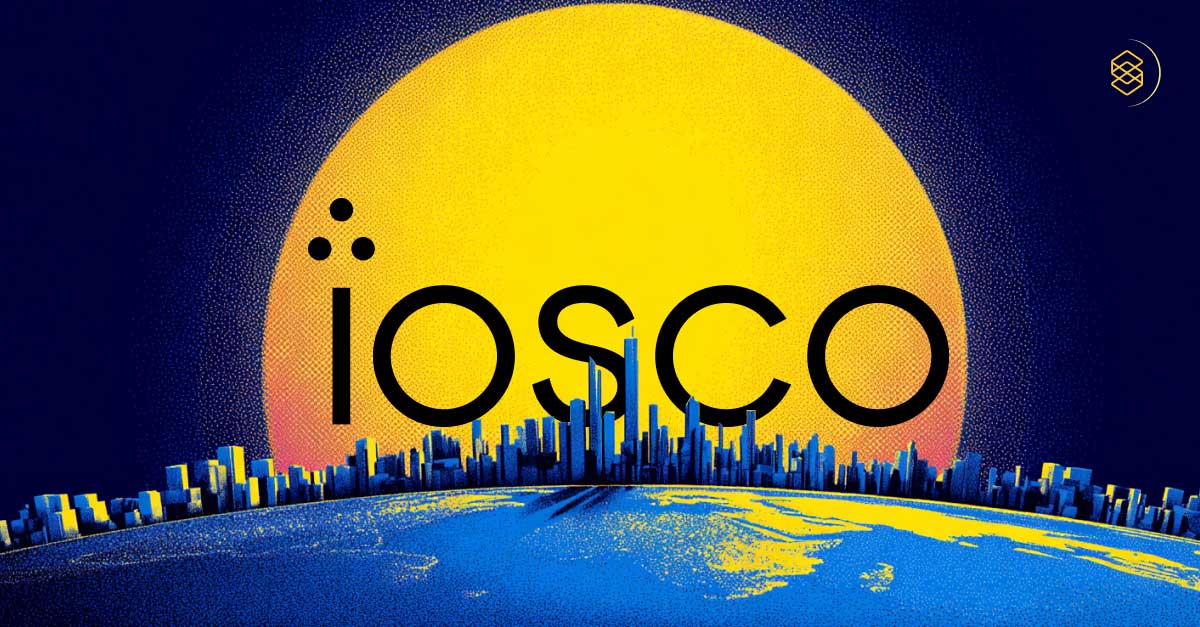The age of “wait and see” in crypto oversight is over. IOSCO’s recent global review confirms that the new era is about execution, cooperation, and intelligence-led supervision - and Solidus Labs stands ready to help jurisdictions and market participants meet that standard.
A milestone in the supervision of digital-asset markets
The International Organization of Securities Commissions (IOSCO) has published its Final Report assessing how jurisdictions worldwide are implementing its 2023 Policy Recommendations for Crypto and Digital Asset (CDA) Markets. This report marks the first coordinated progress check on how the global regulatory community is operationalizing the principle of “same activity, same risk, same regulatory outcome.”
Spanning twenty jurisdictions - from Abu Dhabi and Singapore to France, Korea, and the United Kingdom - the report reveals a landscape where regulation is maturing fast, but unevenly.
The global crypto regulation landscape: momentum with divergence
IOSCO’s analysis confirms significant progress toward implementing frameworks for investor protection and market integrity in digital asset markets. In particular, it’s worth highlighting the sentiment that
“while the majority of crypto-asset use remains legitimate, illicit actors continue to make use of crypto-assets (including stablecoins) for financial crime purposes globally”
This reflects the crossing of a watershed moment - unlike even a couple of years ago, IOSCO, like many other regulators, recognizes the value and usefulness of digital assets, as well as the growing integrity standards that enable their adoption. It’s no longer about whether digital assets are legitimate or not, it’s about enabling clarity to support the industry’s effort to reduce market abuse.
Many regulators have either adapted existing laws to crypto-asset service providers (CASPs) or introduced dedicated digital-asset regimes. Yet differences in scope, enforcement capacity, and speed of rollout are creating fragmented oversight - and with it, the continuing risk of regulatory arbitrage.
In terms of specific nuances, for the practice of risk monitoring and trade surveillance in digital assets, IOSCO is joining many other regulators and standard-setting bodies that emphasize the utilization of AI, cross on- and off-chain methodologies, and warns of integrity related to the pre-chain settlement and the staking process. As an example, the report mentions that “CASPs should also take into account both relevant off-chain and on-chain records” (page 58), and lists the usage of AI and staking risks among new products and emerging risks. As the category-definer for crypto trade surveillance, these are all issues Solidus has already solved, and published extensive research on over the past few years.
Among the most developed markets, Abu Dhabi, the Astana International Financial Centre (Kazakhstan), the Bahamas, Bermuda, Canada, France, Gibraltar, Hong Kong, Liechtenstein, Malta, the Republic of Korea, and Thailand have fully implemented IOSCO’s recommendations on fraud and market-abuse prevention.
These jurisdictions are now moving from rule-setting to supervision - focusing on how CASPs operationalize surveillance, data analytics, and cross-venue detection.
Singapore, Japan, Australia, Brazil, and the United Kingdom are close behind, with draft frameworks in motion that expand obligations around conflicts of interests, market manipulation and insider trading, transparency, and abuse detection.
Both Singapore and Thailand stand out for coupling regulation with capacity building:
- Thailand’s SEC has launched dedicated training sessions for CASPs, sharing practical surveillance expertise with local market participants.
- Singapore’s MAS continues to engage directly with industry to map new risk typologies and incorporate them into evolving supervisory models.
Together, these examples show an emerging regulatory model that pairs compliance mandates with education and collaboration - a pragmatic approach for fast-moving markets still developing surveillance maturity.
From fragmented compliance to global consistency
IOSCO’s findings also spotlight the challenges of cross-border enforcement. While all participating jurisdictions are signatories to IOSCO’s multilateral MoUs, practical information-sharing remains limited. With most major CASPs operating across multiple jurisdictions, the need for interoperability between regulatory frameworks - and between surveillance technologies - has never been greater.
Jean-Paul Servais, IOSCO Board Chair, described the report as “an important milestone in encouraging jurisdictions to ensure that their frameworks sufficiently address investor protection and market-integrity challenges.” The message is clear: principles alone are no longer enough; the world’s regulators must now demonstrate operational readiness.
Solidus Labs’ perspective
At Solidus Labs, we view this evolution as validation of a global trend: market integrity has become the connective tissue of digital-asset supervision.
Jurisdictions that lead are not only introducing stricter rules but also investing in surveillance capacity, data-sharing networks, and technology-driven monitoring.
This is where Solidus HALO - our AI-powered, crypto-native trade surveillance platform - bridges the gap between policy and practice. Born in crypto and built for efficiency, HALO enables regulators, exchanges, and financial institutions to identify market manipulation across any venue, product, or asset class.
At the same time, Solidus is supporting global capacity building through initiatives like the Trade Surveillance Academy - a structured training and certification program designed to help compliance teams, regulators, and market operators master next-generation surveillance. TSA brings together best practices from across both crypto and traditional markets, empowering participants to detect emerging typologies, strengthen supervision, and uphold the gold standard of market integrity.
The Solidus takeaway
The IOSCO review signals the start of an execution era for digital-asset supervision - one defined by implementation, interoperability, and intelligence. Solidus Labs is uniquely positioned to help regulators and market participants meet that challenge through crypto-native modules that translate policy intent into actionable, real-time oversight.
Because the age of “wait and see” is over - and the integrity of global markets can’t afford to wait.







